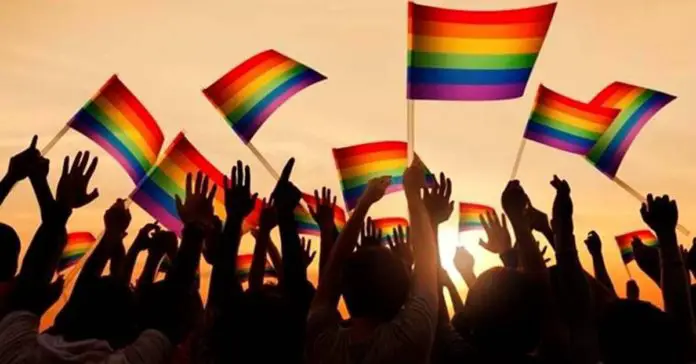
Last week, the Allahabad High Court provided protection to a homosexual pair who alleged before the Court that they were under assault. Just on the grounds of their sexual orientation, the infringement of their rights enshrined in Article 21 of the Constitution of India.
Mahesh Chandra Tripathi of the Bench of Justice and Justice Sanjay Kumar Pachori heard the plea of one Poonam Rani and her partner seeking safety. They also said they were facing extreme opposition at the hands of their family members.
The Court observed that both the petitioners are adults, earning a decent amount and have been living in a live-in-relationship for a few years, and are living voluntarily with each other regardless of their sexual orientation.
Courts remark,
The petition highlights the stark fact of a society in which people are discriminated against by society purely on the grounds of prejudice. In terms of their sexual preferences, it is well settled that sexual orientation is natural to human beings.
Courts observation,
“Constitutional Court is morally obligated to track and observe the Constitutional morality and also the rights of the citizens which are under threat only on because of the sexual orientation.”
The Session, though invoking the decision of the Supreme Court in the case of Navtej Singh Johar & Ors. V. Union of India, (2018) 10 SCC 1, presented a gay couple with immunity from abuse.
In the case of Navtej Singh Johar (supra), the Supreme Court, in the sense of constitutional values, acknowledged the situation of the LGBT community and found Section 377 of the IPC to be incantational.
The High Court reiterated, relating to this decision, the following principles laid down in the case:
- Sexual preference is an essential element of independence, dignity, anonymity, autonomy of the person, and equality.
- Intimacy between same-sex consenting couples is within the lawful interests of the state.
- Such a statute perpetrates myths, grants social stereotypes the legitimacy of the state, and has a chilling impact on the exercise of rights.
- By punishing a portion of the population for their sexual identity, sodomy laws breach equality.
- For a culture that believes in equality under a civil order founded on rules, the right to love and a partner to find satisfaction in a same-sex partnership is necessary.
- Sexual identity means that the state has detrimental and constructive responsibilities. Not only does it require the state not to discriminate, but it also insists that the state accept protections that offer real fulfillment to same-sex relationships.
Related news,
The Orissa High Court recently allowed a 24-year-old woman’s petition to get her same-sex partner, who was forcefully taken away by her partner’s family.
While responding to the Supreme Court’s decision in the case of the National Legal Services Authority vs. Union of India et al, (2014) 5 SCC 438 and Anuj Garg vs. Hotel Association of India, (2008) 3 SCC 1, the High Court concluded that it is clear that all people have the basic right to enjoy human rights, the right to dignity and non-discrimination, The right to be remembered by the courts, the right to health, the right to privacy and the right to fair care during incarceration, etc.”There is really no scope to take a view other than claiming that the petitioner has the right of self-determination of sexual orientation and has the right to have a live-in relationship with a person of his/her choice even though such person may belong to the same gender as the petitioner, the Bench observed.








